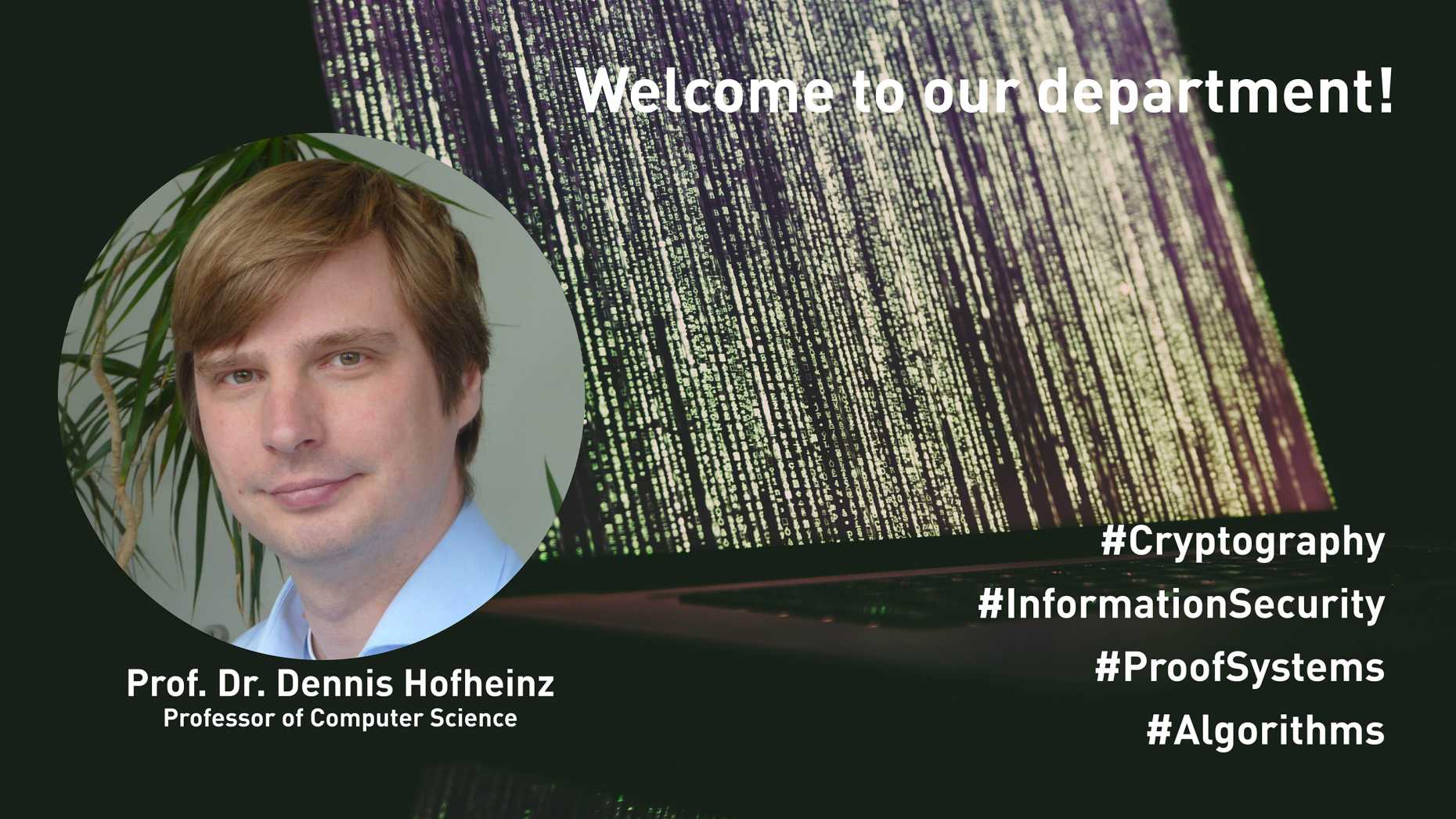Welcome, Professor Dennis Hofheinz
03.02.2020 | Anna Ettlin
Dennis Hofheinz officially joined ETH Zurich’s Department of Computer Science in February 2020 as Full Professor of Computer Science. Get to know him in this short interview.

Professor Hofheinz, welcome to ETH. What are your current research interests?
My goal is secure systems with formally proven security guarantees. During the last 10 to 15 years, I have mainly worked on constructing and improving cryptographic building blocks like encryption and signature schemes, which help to secure communication. Recently, I also started working on more complex building blocks such as zero-knowledge proof systems (which can be used, for example, to prove that you are an adult without revealing your exact age) or code obfuscation. In each case, my aim is to provide rigorous definitions of what these building blocks achieve and which security guarantees they provide.
What is the impact of your research on society?
For many complex electronic systems (ranging from email and e-banking to electronic voting schemes), security is a crucial property. Without secure communication and the secure handling of data, our digital world would not be imaginable. Cryptography is the key component that enables secure systems.
Where were you working before you came to ETH?
I worked at the Karlsruhe Institute of Technology, a technical university in the southwest of Germany.
Which courses will you be teaching at ETH?
I will start with a graduate-level course on digital signatures. Since there are now three cryptographers at ETH, I will coordinate with Ueli Maurer and Kenny Paterson about further courses that I can offer.
Name an interesting fact about your research.
It is possible to toss a coin over a telephone line. That means that two parties can flip a coin (for example, to determine who pays a bill) just by exchanging messages.
What advice would you give to students who are just starting out in computer science?
Computer science is a very broad field, ranging from robotics to complexity theory. Try out many directions and find out what inspires you, and what kind of problems and puzzles you like!